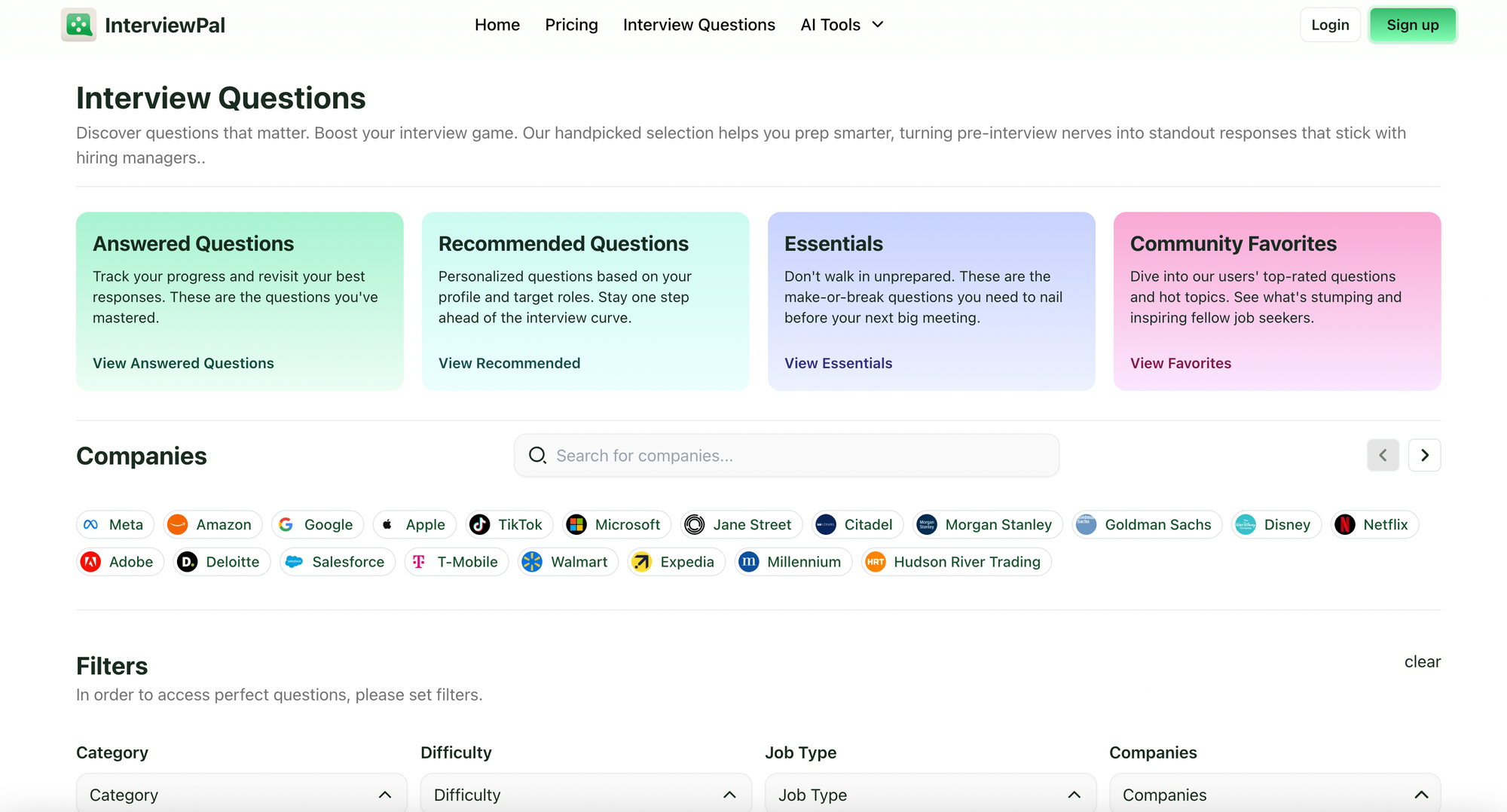When preparing for a job interview, one question that can seem simple on the surface but often catches candidates off guard is: "How would you describe your personality?" Your response to this question can be pivotal. Employers aren’t just looking for skills and experience—they want to know if your personality fits the company culture and the team you’ll be working with.
In this post, we’ll break down how to answer this question thoughtfully and confidently. We’ll also explore how personality assessments can help you better understand yourself, refine your response, and ensure you're prepared to nail this aspect of the interview process.
Why Do Employers Ask About Personality?
When interviewers ask you to describe your personality, they want insight into how you’ll work with others and how well you’ll adapt to their company's culture. Beyond technical skills, they are interested in qualities like:
- Communication Style: How well do you convey your thoughts? Are you approachable and easy to talk to?
- Work Ethic: Are you a self-starter, a team player, or someone who thrives under pressure?
- Problem-Solving Abilities: Do you approach challenges with a positive, solution-oriented mindset?
- Emotional Intelligence: How well do you manage your emotions? Are you empathetic toward colleagues?
This question gives interviewers a better understanding of your soft skills—something that’s often harder to determine through your resume alone.
How to Structure Your Answer
The key to answering "How would you describe your personality?" is self-awareness and providing concrete examples. Here’s a strategy to help you organize your response effectively:
1. Reflect on Your Strengths
Start by considering the traits that make you an asset to any team. Think about your past roles, how you've interacted with colleagues, and what qualities people often compliment you on. For instance, are you someone who takes initiative? Do you work well under tight deadlines? Are you the team member who always steps up to solve problems?
2. Align Your Traits with the Role
It’s crucial to align your personality traits with the job you’re applying for. Review the job description and identify the qualities they are seeking. For example, if the role requires collaboration, you could emphasize that you’re a good listener and enjoy working in a team. If the role requires independent work, you could highlight your ability to self-motivate and manage tasks efficiently.
3. Use Specific Examples
Once you’ve identified your strengths and aligned them with the role, back them up with examples. This demonstrates that you’re not just throwing out buzzwords but can actively showcase how your personality has been an asset in previous roles.Here’s how to structure your answer using these three steps:
- "I would describe my personality as proactive and solution-oriented. In my previous role at [Company], I often took the initiative to streamline processes and improve team efficiency. I also enjoy working collaboratively and believe that communication is key to team success. For instance, when working on a tight deadline, I organized team meetings to ensure everyone was aligned, which helped us complete the project on time and above expectations."
Common Personality Traits to Highlight
If you're unsure about which traits to emphasize, here are some common personality traits that interviewers often look for:
1. Adaptability
In today's fast-paced work environment, adaptability is critical. Employers want employees who can handle change and be flexible when challenges arise.
Example: "I thrive in fast-paced environments where adaptability is key. In my last job, I had to quickly learn new software to streamline our project management, and within weeks, I was training others on it."
2. Team-Oriented
Being able to work well with others is essential for almost any role.
Example: "I’m very team-oriented and enjoy collaborating with others. At [Company], I often facilitated team discussions and acted as a liaison between departments to ensure our goals aligned."
3. Detail-Oriented
Attention to detail can differentiate an average employee from an excellent one, especially in roles requiring precision.
Example: "I would describe myself as highly detail-oriented. Whether it's proofreading documents or managing project timelines, I always ensure that no detail is overlooked."
4. Leadership
Even if you're not applying for a managerial role, showcasing leadership qualities can be beneficial, particularly if you’ve led projects or teams in the past.
Example: "I’m a natural leader and enjoy taking on responsibilities. In my last role, I led a cross-functional team to implement a new CRM system, which improved our client communication by 20%."
Incorporating Personality Tests
If you're struggling to describe your personality, personality assessments can be incredibly helpful. These tests offer insights into your character and behaviors, giving you a more objective way to understand your strengths.
The MBTI is one of the most popular personality tests and categorizes individuals into 16 different personality types based on preferences in four areas: Introversion vs. Extroversion, Sensing vs. Intuition, Thinking vs. Feeling, and Judging vs. Perceiving.For example, if you are an ENFJ (Extraverted, Intuitive, Feeling, Judging), you may be great at bringing people together and leading teams toward a common goal. You could emphasize this in your interview response.
This test measures five broad dimensions of personality: Openness, Conscientiousness, Extraversion, Agreeableness, and Neuroticism. Understanding where you fall within these categories can help you frame your answers around your strengths.For instance, if you score high in Conscientiousness, you might emphasize your reliability and attention to detail.
3. StrengthsFinder
The StrengthsFinder test identifies your top five strengths from a list of 34 themes, such as Responsibility, Relator, or Achiever. This test is a great tool for honing in on specific strengths to mention in your interview.
Avoiding Common Pitfalls
When answering personality-based questions, it’s important to steer clear of a few common pitfalls:
- Avoid Being Too Humble: While humility is a great trait, downplaying your personality or strengths can make you seem unsure of yourself. Be confident and own your traits!
- Don’t Exaggerate: It’s essential to be truthful when describing your personality. Over-exaggerating can come off as disingenuous, especially if your future work doesn’t align with the personality you describe.
- Avoid Clichés: Avoid generic phrases like "I'm a perfectionist" or "I work too hard." These are overused and don’t provide any real insight into your personality.
Example Responses for "How Would You Describe Your Personality?"
Here are a few sample responses for different scenarios:
For a Marketing Role:
"I would describe myself as a creative thinker who thrives on collaboration. In my previous role, I led brainstorming sessions that helped generate innovative campaigns, which boosted our social media engagement by 30%. I enjoy problem-solving and believe in fostering a supportive team environment to achieve the best results."
For a Technical Role:
"I’m analytical and detail-oriented, which helps me excel in roles requiring precision. I take a methodical approach to solving problems and enjoy diving deep into complex technical challenges. At [Company], I was known for being thorough in my code reviews and ensuring quality before deployment."
For a Customer Service Role:
"I’m a people person who genuinely enjoys helping others. In my last job, I handled high-volume customer inquiries and prided myself on being patient, empathetic, and solution-driven. I believe these qualities would allow me to build positive relationships with your clients."
Mastering the "How Would You Describe Your Personality?" question:

Describing your personality in an interview can feel tricky, but with thoughtful reflection and preparation, you can deliver a confident response that highlights your strengths and aligns with the role. Remember, personality is just as important as skills and experience—so don’t overlook this part of your interview preparation.At InterviewPal, we help you practice and refine your answers to tricky interview questions like this one. With tailored feedback, mock interviews, and real-time coaching, you’ll walk into your interview with confidence, ready to impress.



